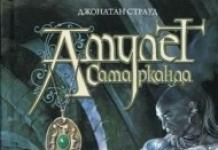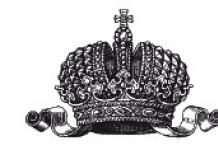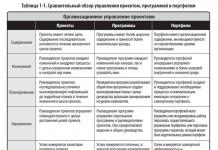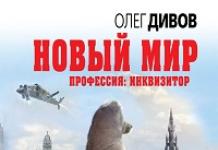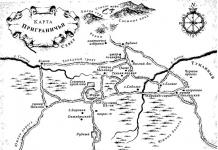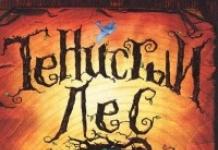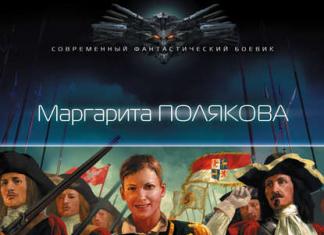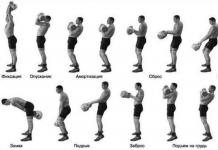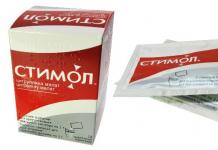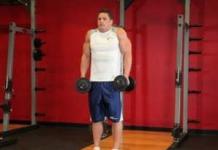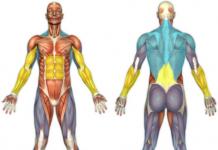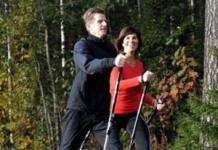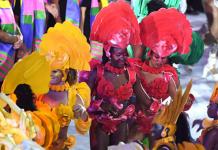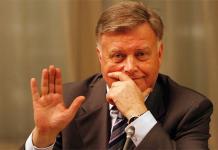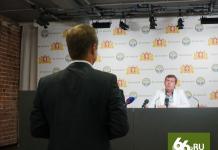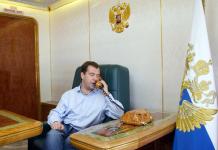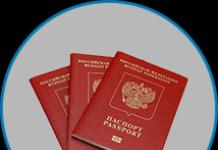© Kaspari K., text, photo, 2017
© Design. LLC "Publishing house" E ", 2017
* * *
From the author
The main character of this book is Vitaly Konstantinovich Kaloev. An Ossetian, whose name became known to millions of people in Russia and abroad, after in February 2004, in the suburbs of Zurich, he killed air traffic controller Peter Nielsen, through whose fault two planes collided in the sky over Germany on the night of 1 to 2 July 2002 ... On board one of them was the whole Kaloev family: his wife Svetlana and two children - 10-year-old Kostya and 4-year-old Diana.
After the murder of the dispatcher, society was divided: some were ready to understand and accept Kaloev's act, others insisted that there was no and could not be an excuse for the murder. The latter included, for example, one of the Russian consuls who visited Kaloev in a Swiss prison on duty. But his opinion changed after his 16-year-old son died. “It is impossible to understand the grief and despair of a person who has lost a child until you yourself find yourself in his place. I'm sorry that I condemned you, ”he said to Kaloev. "If I knew who killed my son, and knew for sure that the guilty person would not be punished, then I would most likely have done the same as you."
I do not aim to justify Vitaly Kaloev in the eyes of the reader. Even he does not justify himself. Indeed, in spite of what he had to endure, he nevertheless crossed the line, killed a man. But what made him take this step? Blood feud, allegedly still widespread in the North Caucasus, what has the Western media written about so much? Insanity over the loss of loved ones? Or the inaction and indifference of those who were supposed to hold those responsible for the catastrophe to account? And if the latter is true, then what else could one have done in a situation where money and power clearly outweighed justice?
"Clash" is not only about the collision of two planes, it is also a clash of different mentalities, different value systems in which we and Western Europe live. It's also about colliding with yourself. About how, under the influence of difficult life circumstances, you can find inside yourself a stranger, whose ideas about life and morality are diametrically opposed, enter into a battle with him and not lose it. About how every day you have to deal with your weakness, guilt, despair and loneliness.
This is the real story of a man who lost everything. Not only a family, but also a meaning to live. Because in his system of values, children are the only thing for which it makes sense to live. He did not learn to live differently even now, almost 15 years after the plane crash.
The book is based on the recollections of people who helped Vitaly Kaloev in the first days after the plane crash at the crash site, and those who were with him during the investigation and trial in the murder of Nielsen. On the recollections of the main character's relatives and, of course, first of all on the recollections of Vitaly Kaloev himself. For the first time, he openly answered many questions, including whether the murder of Nielsen was unintentional, as the court decided in the end.
Ksenia Kaspari
Prologue

One year and eight months after the plane crash
Kloten, Switzerland
The roar of the motors grew. The plane was running down the runway past the glass building of the Zurich airport. Seconds - and he is already in the sky. Throwing back his head, Vitaly Kaloev looked at the Boeing until the flashing beacons were barely visible.
Another cigarette, right down to the filter, burned my fingers. He threw the butt on the ground and extinguished it with his boot. I looked at my watch - 17:45.
It was already getting dark outside. Lanterns and lights came on in the windows. Occasionally, when the hum of planes taking off and landing ceased, the cozy sounds of everyday life came from the houses: the clink of dishes, laughter, soft music or the muttering of the TV. An ordinary evening of ordinary life, which he no longer has and never will.
"Well, it's enough! How long can you pull? "
Vitaly stood here for more than an hour - twenty meters from the house, on the door of which he was to knock - and kept repeating the same questions in his head: “Will he recognize me? Will I have to explain why I came? "
A curtain jerked in the window of a neighboring cottage, and again a barely discernible dark figure flashed through. Someone had been watching him for the last fifteen minutes.
Kaloev fumbled a folding Swiss knife in his pocket and slowly moved to the desired house. A one-story building of an unpleasant dirty pink color with two white doors. He walked past them and turned the corner. The house stood on a hill, and below, on the plain, was the Zurich airport. From here, the entire runway is in full view. It was the size of the planes, the terminal building and the control tower — the workplace of a man with whom he would finally meet face to face in a few minutes.
Vitaly knocked on the glass door on the veranda. After a few seconds, an invisible hand moved the curtain, and he saw a frightened woman's face. Smiling tightly, he placed a sheet of paper with a name and address written on it against the glass. After a pause, the woman opened the door a little.
- Are you looking for someone? She asked.
- Good evening, - Vitaly answered and handed her the paper.
The woman gave her a cursory glance, nodded, and motioned to the next door.
A few steps - and a soft knock, which sounded inside him as a booming alarm. The door opened almost instantly. As if the owner had been waiting on the doorstep for a long time. Their eyes met, and Vitaly immediately understood that there was no need to explain anything. They recognized him. But just in case, he still said:
- Ich sien Russland! (I am Russia!)
Chapter 1
Towards the inevitable

5 hours before the disaster
Blanes, Costa Brava, Spain
Outside the window of the white Mercedes stretched the endless, but, alas, not the native Black Sea, but the alien Mediterranean Sea. July is the peak of the season, and there was not a single free space on the sandy ridge of the resort Blanes. The white bodies of those who had just arrived on the coast and the tanned skin of tourists who had been vacationing for a long time looked like a giant footpath - a living, languidly moving "zebra". And what only do people find in this idle reclining under the scorching sun?
Blanes is one of the oldest Spanish resorts, the city is located 60 km northeast of Barcelona in Catalonia, with a population of about 40 thousand. The nearest airports are in Girona and Barcelona (Russians prefer it).
Vitaly Kaloev himself was only a couple of times on the beach during his two years of life in Spain. Partly because he did not like the sea. He, like any Caucasian, loved mountains. And he believed that only highlanders could be better than mountains. A true mountaineer does not waste time basking in the sun. This activity is for women. And his Sveta, of course, also loved to lie on the beach. Vitaly did not see his family for almost a year and, while waiting for a meeting, now and then drew in his imagination a quick joint vacation. The plane had not yet departed from Moscow, and he was already impatiently driving to meet him in Barcelona.
Looking at the sea, Vitaly imagined his wife at the water's edge: she holds Diana by the hand and watches Kostya dive, because he needs an eye and an eye. The son is ten, and he is absolutely fearless and very active. There are only four daughters. She had never been to the sea yet, but knowing her character, Vitaly had no doubt that the baby would not be afraid of the water. Diana grew up among boys. In addition to her brother, she had several cousins and second cousins, with any of them the daughter could compete in courage and speed. It is obvious that getting Diana out of the water every time will be very difficult. And yet Vitaly decided that the sea would be only in the morning, before the siesta, and after that there would be a cultural program.
In the suburb of Blanes, there is the largest botanical garden in the country "Mar and Murtra". Kostik should have liked it. Of course, the paleontological museum would have impressed him more, his son was absolutely obsessed with dinosaurs, but the giant cacti that survived the era of pterodactyls and tyrannosaurs should have impressed him. And of course, the 13th century San Juan Castle, the 12th century Romanesque Basilica of St. Barbara would be of interest to everyone. Their family loved history. “It will be necessary, by the way, to tell Kostik about the relationship of the Catalans and Alans,” Vitaly thought at that moment.
Going down to the city by car, he slowed down and, having driven a couple of blocks, stopped at a small shop. His owner Jesus (Vitaly called him Jesus) smiled affably and, rolling his eyes, ran the back of his hand over his forehead. This meant it was very hot today. Vitaly greeted his friend with a wave of his hand, and nodded his head in agreement with his meteorological observations. For two years in Spain, he learned to do almost without words, only one language of international sign. In Spanish, however, I already understood well enough, but I still spoke somehow.
- Qué tal, Vitali? Jesus asked.
- I'm going to Barcelona, to the airport. My family is coming! - answered Vitaly, generously diluting his meager Spanish with eloquent gestures.
And Jesus, apparently, understood everything. His smile widened, he clapped his hands and shouted:
- Congratulations! - and something else, from which Vitaly understood only one verb "esperar" ("to wait"), but he guessed what it was about.
- Yes Yes! Waited for a long time!
Vitaly went to the shelves with chocolate. I found the largest tile and took two pieces at once, and then some more Skitles-type sweets. I saw a whole bucket with different sweets. Thought: take, or what, and him? Sveta, of course, will begin to swear, but Diana made it clear in her last telephone conversation what she expects from the first meeting with her father after a long separation. "Buy me small bars, big chocolates!" - she told him on the phone. And he could not disappoint her! Who in the Kaloev family would dare to disobey Princess Diana? But once Vitaly wanted to name her in honor of his mother - Olga ...
Son Kostya bore the name of his grandfather - a man respected throughout Ossetia, an honored teacher who, despite his meager income, brought sweets to his children every time he got out of the village to the city. And definitely books. They had a lot of books! Even the local school and village council did not have such a library as in the Kaloev family. It was Father Konstantin who instilled in Vitaly and his brothers and sisters a love of reading and history. And Vitaly instilled this love in Kostika.
Already at the age of seven, Vitaly's son knew all his ancestors up to the fourteenth generation. And he, one might say, chose his name himself: Kostya was born exactly four years after the death of his grandfather, day after day - November 19. And it would be somehow quite logical, according to Vitaly, to name the daughter in honor of the mother, to equalize, so to speak, the parents. But Svetlana and Kostik opposed him with a united front, they wanted to name the girl in honor of the British princess Diana.
And the Princess was born indeed! At least the girl ruled over her father completely. No one had ever had such power over him! Her voice alone, even on the phone, awakened in him some kind of painful, simply inhuman love - he was ready to listen to her for hours. And here, in Spain, all the work got up when the Daughter called Vitaly. She herself dialed her father's phone number, and he was very proud of it. Well, do you know a lot of four-year-olds who can remember and dial a ten-digit number on their own? ..
It was as if there was some kind of invisible, mystical connection between them. At first, it even scared Sveta. Diana, for example, felt in advance when her father was returning home.
- Mom, dad at home!
- No, daughter, the gates are closed, there is no car. Dad is still at work.
- No, he's at home!
In about five minutes the gates opened, and Vitaly's car drove into the yard.
Diana was also well aware of her father's mood. Even on distance. She often called him exactly when Vitaly was overcome with a melancholy, tormented by longing for home, for family, for the mountains.
- Dad, you're sad!
- This is because, Diana, I really miss you!
- Maybe you ate too many cockroaches?
They called seafood among themselves cockroaches. Vitaly did not think of a better explanation for what shrimps and mussels are, and simply called them “sea cockroaches”. And Diana in kindergarten painted for teachers the horrors of her father's life abroad: "My dad works at a construction site in Spain and eats cockroaches!"
Kostik also called Vitaly, of course, but usually on business. If, for example, some technique did not work out in any way. The son was engaged in freestyle wrestling, like all (well, almost all) boys in the North Caucasus. In no other region of the world you will meet so many champions - cities, regions, countries and even the world - and all in freestyle wrestling. Kostya also talked to his father on other topics, for example, if it was necessary to ask for some absolutely necessary thing. The last time it was a telescope. Astronomy is Kostik's second passion after dinosaurs. Vitaly promised him a telescope as soon as the family returned from Spain.
And recently Kostik called his father to "figure it out." He just said: “We need to figure it out! The boys at school say that you won't come back home because you have had another woman there for a long time! " Vitaly did not laugh, because his son tried to be a real man, defended the honor of the family. He simply told Kostya that he loved his mother. And he loves him. And Diana. And there is no such force in the world that can prevent him from returning home.
With his wife, Vitaly mostly talked about business, they did not even imagine that everything would turn out so well in Spain. It was some incredible coincidence.
Vitaly, while still in Ossetia, built a house and a plant for the production of alcohol for his friend Ibragim. At this "drunken" construction site, Vitaly broke his leg - he landed in a six-meter hole and lay in a cast for a year. And then the 98th default struck, his construction company ordered to live a long time. There was no money at all, and then Ibrahim offered to come to Spain. Thus, Kaloev was lured to Blanes by a friend who bought a house and wanted to rebuild it. But at first he was called, of course, just to visit for a while. Ibrahim knew that when Vitaly saw the scope of work, he would not resist, he would get involved, because Kaloev was one of those lucky ones who love his job. Vitaly could sit at the table for hours at the blueprints of his future houses.
During the Soviet Union, Kaloev built only typical block five- and nine-story buildings, gray and one-sided, they themselves were not a reason for pride. But he was proud of them, because his houses were located in the Elbrus region - where until recently there were no roads. Kaloev and his colleagues were pioneers: they built both roads and houses. And when the Union collapsed, completely different peaks opened to Vitaly.
Building materials appeared on the market, which had never been dreamed of before, plumbing equipment of unprecedented beauty and convenience for Soviet people, rich wallpapers and bright colors. In the late 80s, Vitaly created his own building cooperative and in a few years built about a hundred private houses in Vladikavkaz - one more beautiful than the other. In 1991 he even undertook to build a church. Before him, no one wanted to undertake the construction of the temple, this is charity, zero income. Vitaly was summoned to the trust, put pressure, as they say, on the patient: “Your father was such a wonderful person! I did so much good to people! He would be proud of you! " Well, Sveta, again, was buzzing all over her ears: “You can't refuse such a thing! You can't refuse! " And Kaloev made up his mind. It was necessary to increase the family glory!
Vladikavkaz already has a street named after Kaloev, in honor of Zaurbek Kaloev, who represented the mountain peoples in the Central Executive Committee of the USSR. There are two Heroes of the Soviet Union in the family: Alexander Kaloev, like Alexander Matrosov, closed the embrasure with himself during the Great Patriotic War; Georgy Kaloev received the title for the liberation of Budapest. So let there be now the church built by Kaloev. He poured the foundation, erected the walls, spending half of the money earned on the construction of private houses, and then the temple was simply taken away from Vitaly.
The first mayoral elections were approaching, and the candidates - yesterday's communists and atheists, and now suddenly democrats and Orthodox - launched a real war for the right to finish building the church. It was a surefire way to raise the rating. As a result, the church turned into a long-term construction.
Resort Blanes experienced a real construction boom in the late 90s. A cozy, quiet town on the famous Costa Brava was chosen by the "Russians": as usual, the locals called them not only the Russians themselves, but also all the neighbors in the CIS. Vitaly had not yet finished work for Ibrahim when he began to receive offers from other compatriots.
Kaloev's brigade enjoyed a good reputation in Blanes. First, the quality work done spoke for itself. Tourists stopped to take pictures at the house built for Ibrahim. The building looked so imposing that it seemed not a private house at all, but an ancient, carefully restored castle of some noble family. Secondly, Kaloev had already "captured" everything. He met the owners of all the hardware stores in the area. From some I bought finishing materials, from others - plumbing, from others - tools. And all with discounts, in some retail outlets - up to 30 percent. Ignorance of the language did not prevent me from establishing business contacts. If they didn’t understand at all: “Ke keres, Vitaly, ke keres?”, He would take a sheet of paper and draw what he needed. Well, you can win over people without words. For this Vitaly used a method widespread in his homeland - a bottle of good wine and something sweet, such as a cake. And the Spaniards who were not used to such "business negotiations" still had to quit their jobs and sit down to drink tea, or even something stronger with this "strange but so charming Russian."
Vitaly helped his compatriots with the purchase of building materials, but he never contracted to work for any of them. Instead, he considered starting his own construction business. Of course, at first you will have to take a loan from a bank, but his wife (and she is a financier with experience) has long figured everything out and came to the conclusion that the risks are minimal. However, they still had to discuss this business project as soon as Svetlana arrived in Blanes.
In the meantime, Vitaly was buying sweets for children in Jesus' store. He put an impressive mountain of chocolate at the checkout counter. The owner passed the goods through the tape and laughed: "Vitaly, they will not eat this until the end of the summer!" Kaloev nodded, smiled and looked at his watch. Lights and children should just fly out.
8 hours before the disaster
Moscow, Russia
For Svetlana Kaloeva, on this day, time, on the contrary, flew by. Around noon, she received a call from the travel agency and was told that there were tickets for an evening charter to Barcelona. “Rare luck! A flight has been organized for some schoolchildren, and there are free seats on board. I have booked three tickets for you, but you have to pay for them within two hours in our office, ”the agent chattered into the receiver. There are no direct flights from Vladikavkaz to Barcelona, and it was not so easy to buy tickets in Moscow at the peak of the holiday season. Business class did not fit into their budget, the economy tariff was sold out long ago. Svetlana, on the other hand, was afraid to buy tickets in advance: what if they wouldn't give them visas ?! They submitted the documents to the embassy in May and waited for their registration for two long months. By this time, Vitaly had long since finished all projects and could have come home himself, but he and Sveta really wanted to take the opportunity to take Kostik to the sea. The boy is allergic, and in the summer in Vladikavkaz, due to the flowering of mountain grasses, he could hardly breathe. “The sea will do him good! - Vitaly persuaded his wife. “I’ll wait for you here, and then we will return home together!”
And after three days of waiting in Moscow, they finally got lucky. Svetlana rushed to the center, to Tverskaya, paid for tickets there, which still had to be picked up at the airport from a travel agent, and back to the metro, home for the children. “Run, run! We won't be in time, we'll be late! Traffic jams in Moscow are terrible! "
In the capital, Svetlana and her children stayed with Vitaly's older brother, Yuri. The Kaloev family had six children: three brothers and three sisters. Yuri is the oldest, Vitaly is the youngest, there are twenty years of difference between them. The elder brother and his wife Margarita doted on their little nephews, did not take them off their hands.
Almost every summer Kostik visited them for a month, and it was Aunt Margarita Mikhailovna, a geography teacher in a secondary school, who took him to the paleontological museum for the first time. There, the boy supplemented the guide's stories about the life of dinosaurs, and he was promised that next time he would be allowed to enter the museum free of charge. And the very "next time", which at the insistent request of Kostya happened three days later, the intelligent Margarita Mikhailovna, of course, categorically refused from "free".
Thanks to an extensive program: trips to theaters, cinema, museums and excursions around Moscow - Kostik returned to Vladikavkaz utterly cultivated. So I got into the image that the first days I did not go out to play with the neighboring boys: “Mom! What am I going to talk to them about ?! " But the love of football won out. And a week later - on the run and in fights - the pathos flew from Kostik, but his love for Moscow with its unlimited possibilities remained. Although both Svetlana herself and Vitaly hoped that the future of Kostik would be connected with his small homeland - Ossetia and Vladikavkaz - they wanted their son to see the world and receive a good European education. For this, he has been intensively studying English for the third year.
Diana did not yet understand what Moscow is. For her, the whole capital fit into a huge courtyard playground: here you have a slide, a sandbox, and turnstiles-stairs, along which she moved on Uncle Yuri's shoulders. There was no comparison with Vladikavkaz, where the Kaloevs have their own house, but the yard is quite small and there is only a swing in it.
Uncle Yura went with Diana to the site both in the morning and in the evening. They would have stuck there all day, if not for the mother and aunt, insisting on lunch and a quiet hour. Despite the complete “enslavement” by his niece, Uncle Yura, as a therapist, perfectly understood how important the regime was for a child. So on the eve of the flight, in the evening this "couple" went home, bursting with laughter, while bickering with each other: "I love you!", "No, I love you!", "No, I love you!" And 65-year-old Yura shone just like a young child, because they argued with their nephew who loves whom more. Diana loved everyone! And everyone loved her! Passers-by were reaching out to her on the street: “What a girl! What a doll! " Fidget, fidget, with the boys in pursuit rushed, but always smart, in dresses. The coquette is impossible!
When Sveta returned home from the travel agency, Diana was already asleep. I had to wake up. Fortunately, it is not necessary to get ready for a long time - we lived on suitcases for all three days. Vitalik called when she was not there. Well, nothing, Svetlana will pick up her husband from the airport, but now there was no time. The main thing is that Margarita Mikhailovna has already told him the time of arrival.
The Kaloevs' nephew was taken to Domodedovo by Amur's nephew. He recently got behind the wheel and was not yet very good at navigating the roads of the capital, so he had to take with him the "navigator" - a neighbor, Uncle Lesha. With him, despite the rush hour, "orchards" to the airport very quickly arrived - in just an hour. But there were only 30 minutes left until the end of registration.
In Domodedovo, as always at the height of the holiday season, it was full of people. In the huge hall, it seemed, there was not a single idle registration counter, each had its own long queue. People crowded in front of monitors with information about flights, fought for magazines in newspaper stalls, stood drinking beer in cafes packed like a barrel of herring.
Amur paved the way through the crowd to the travel agency counter, where tickets were to be given to Svetlana. He walked in front with two suitcases. And Kostik, taking advantage of the fact that his brother's both hands were occupied, kicked up, tripped, pushed, and in response to the "threats" "to kill as soon as he got rid of these damn suitcases," he just burst into laughter.
- Well, that's it! The end is for you! - said Cupid to his younger brother, dropping bags on the floor at the travel agency counter.
Kostik laughed and started to run. Cupid, who rushed to catch up with him, did not notice that Diana had started after them.
Svetlana at this time was already talking with an employee of the travel company. And when I finished and turned around, there were only suitcases nearby. She reached into her purse for the phone to dial Cupid, but then she heard Kostik laugh. He ran up and hid behind her back from her brother. He tried to get it, but the boy, grabbing his mother by the waist, covered himself with it like a shield. At any other moment Sveta would have laughed, but now she had no time for laughter.
- Where is Diana?
- I thought she stayed with you! - answered Cupid.
- Diana! Diana! - instead of a cry, Svetlana got a whisper. The voice did not obey.
- You go to the left, I to the right! - she ordered Cupid.
Svetlana ran all over the departure hall, looked, it seems, into every corner and kept asking, asking, asking. Nobody saw the little girl in a pink dress and white beads. The poor mother no longer needed any Spain. She did not need anything - if only there was a daughter! If only nothing happened to her! Svetlana knew, she felt: something would happen! Before leaving Vladikavkaz for Moscow, I even stopped by my mother at the cemetery - it was so heavy in my heart! Straight stone!
- Ku-ku, mom! - suddenly Dianka jumped out of the newsstand to cut Svetlana.
- Never, Diana, never do that again! You really scared me! - the worried woman grabbed her daughter and hugged her.
There were only ten minutes left until the end of registration. They were late for their flight! Kostik and Amur were waiting for them at the same agency counter, and then they all rushed to check in their luggage. The girl from Bashkir Airlines could not hide her irritation:
- You, as they say, jumped on the departing train! We were just about to close the registration!
At the customs zone, they said goodbye to Cupid. Kostya again pushed his brother, ran behind the barriers and from there began to make faces. Cupid laughed:
“Mind you, I'm vindictive! When you arrive from Spain, I will take revenge on you!
The light no longer let go of Diana's hands, and the crumb, thawed by the heat, quickly fell asleep. Even the noisy band of teenagers who were waiting to board the plane did not wake up the baby. About fifty boys and girls were pushing and laughing, taking pictures, and Svetlana, looking at them, exhaled, finally relaxed. "Things are good! It's all over! We made it in time and will soon be on the plane. "
- Are you flying with us too? One of the girls asked her.
- Apparently, yes. Where are you from so many?
- We are from Ufa, going on vacation. True, this is our second attempt. We were brought to the wrong airport the day before yesterday. We spent two days in Moscow until this charter was organized for us. Imagine what a bad luck!
Sveta nodded and thought that if it had not been for this bad luck of the Ufa schoolchildren, they probably would not have left today. Then she took out her mobile to call Vitalik, but it turned out that the receiver had time to sit down and disconnect. Well, nothing, he already knew everything and had to meet him at the airport. It's time to stop being nervous. It's all over. Get out and the landing has begun. Four hours of flight, and they will finally see Vitalik.
15 years ago, Vitaly Kaloev lost his entire family in a plane crash over Lake Constance. He subsequently killed the air traffic controller on duty at the time of the collision. Ksenia Kaspari, the author of a documentary novel dedicated to these tragic events, tells in her book how the murder happened and whether it was accidental or deliberate. You will learn more about the motives of the widower who has already served his sentence from an excerpt exclusively provided to our portal by the EKSMO publishing house.
The documentary novel "Collision", written with the direct participation of its protagonist Vitaly Kaloev, tells the story of a plane crash over Lake Constance, which is considered the most terrible page in the history of Russian aviation.
On July 2, 2002, in the sky over the German city of Uberlingen, a DHL cargo Boeing collided with a Bashkir Airlines passenger plane on a charter flight from Moscow to Barcelona. Most of the passengers of the crashed TU-154 were children. Vitaly Kaloev lost his wife Svetlana and two children in this disaster - 10-year-old Kostya and 4-year-old Diana. He is the only one of all the relatives of the victims to take part in the search operation at the crash site. And then, without waiting for the results of the investigation, he will kill the dispatcher who controlled the airspace during the tragedy.
To the 15th anniversary of the plane crash over Lake Constance, the Eksmo publishing house has published a documentary novel dedicated to the tragedy
“Helmut Sontheimer was appointed as escort from the police. In his car, they quickly crossed the road, without stopping bypassing all the posts. The wreck was seen from afar. The Tupolev's tail, drowned in fire foam, lay right on the country road. A few meters from it - the chassis and turbines. Twisted, sooty metal. Someone's hand cleared the Russian flag on the fuselage. Dozens of police officers and experts in protective suits. Bodies were taken out of the wreckage.
Vitaly, I'm sorry, but this cannot be done. - Helmut (policeman, - approx. Site) stopped Kaloev, who tried to enter the plane for the experts.
- What if my son is there? Or a daughter? He shouted back. - I have a right! These are my children!
- Vitaly, we were allowed to be here only on condition that we do not interfere with the work of the operational services! You are welcome! I'll have to handcuff you!

Svetlana, wife of Vitaly Kaloev, with her daughter Diana (spring 1999)
Vitaly stood by the wreckage until all the remains found there were taken out. Every time when policemen with stretchers appeared from the darkness of the salon, he shuddered, but forced himself to watch. Some bodies were so disfigured that a mere glance was not enough, and he ran after the stretcher until he was completely sure that this was not his child. The bodies and their fragments were piled in a clearing, where other police officers put them in bags and carried them to a truck parked on the side of the road.
Vitaly, do you want me to read a prayer? - The pastor saw that Kaloev was shaking from barely restrained tears.
The priest wanted to come closer and hug Vitaly, but he felt that he was in complete disarray and by no means longed for it, but on the contrary.
Prayer ?! - Kaloev shouted to him in response. “After all this,” he pointed to the bodies, “do you still believe in God ?! If he is, your God, then why allowed this ?! - Vitaly breathed heavily, holding back his anger and tears.
Six minutes to Earth
[…] The expert asked Vitaly the standard questions in this case: dates of birth, names, special signs, what they were wearing. In case a DNA test is needed, a saliva sample was taken.
- And yet, - the expert, obviously timidly, lowered his eyes, - we have photographs of already discovered bodies. If you are ready ...
He handed Kaloev a pack of pictures. Vitaly looked through the first two, and looking at the third, suddenly shouted:
- Diana! My Diana!
He heard his own voice as if from the side. A terrible, hysterical cry of a stranger. Vitaly was blinded by tears welling up, the world floated before his eyes. He lost control of himself, his soul seemed to come out of him, breaking ribs, tearing flesh. Pain pervaded everything. Only one continuous continuous pain!
Maya (translator, - approx. Site) hugged Vitaly, trying to calm him down, to stop this cry, but he looked through her, not seeing or hearing anything, as if he was not there. Maya turned so pale that she seemed about to faint. Helmut with difficulty tore her away from Vitaly and brought her out into the fresh air. There she was examined by the doctors of the ambulance, which was on duty at the headquarters. When they returned back, Kaloev had already pulled himself together.
Maya, tell them that I want to see my daughter!

Kostya and Diana at a recently planted cherry tree in the courtyard of the Kaloevs' house (spring 2001)
Helmut foresaw this request and was afraid of it. The place where the bodies were kept was carefully hidden. In Uberlingen and its surroundings, there was not a single morgue designed for such a number of bodies. And the remains were temporarily taken to the Goldbach adits. They began to be built in the fall of 1944 after a series of intense bombing raids on Friedrichshafen. Especially for this, a Dachau "branch" was opened in the vicinity of Uberlingen, where more than 800 prisoners of war were transferred. These were mainly Poles and Russians. We worked around the clock. In less than seven months, a four-kilometer-long tunnel was dug inside the rock. This cost the lives of two hundred prisoners.
And now, half a century later, the bunker, which was built for the Nazis by Soviet prisoners of war, suddenly became a temporary "refuge" for 52 dead Russian children. Understanding this terrible irony of fate, the Germans kept in the strictest confidence where they had to keep the bodies.
Vitaly, - Helmut suddenly realized that he was talking to this unfortunate Russian like a child, - you know it's forbidden ...
- I don't care about their bans! - Kaloev immediately flashed. “Everyone already knows that the bodies are taken to the adits. You alone make a secret out of it! If I am not allowed to see my daughter, I will go there myself!
- I'll talk to the management. Perhaps an exception will be made for you again. You've already identified her.
The headquarters took a break to coordinate this decision with the ministry. Helmut suggested that Vitaly go to the place where Diana was found. The girl's body was found the next morning after a disaster on a farm twenty kilometers from Ovingen. As Helmut said on the way, Diana saw the daughter of the owner of the farm, driving the cows to the pasture.

Experts inspect the wreckage of Tu-154 in Ovingen
I keep trying to remember the acceleration of gravity ... 9.8? - Vitaly asked suddenly.
“Yes, 9.8 meters per second,” Helmut confirmed. - Why are you asking about this?
- I'm trying to calculate how long they flew to the ground before they die ...
- Vitaly, they died at the time of the collision! - Michael intervened in the conversation (psychologist, - approx. site). - The planes collided, there was an explosion, a fire!
- Then why is Diana whole? - Vitaly asked him. - She's not even burned! What if she was simply thrown out of the plane at the time of the collision? And she was alive until she fell to the ground ...
- Please don't think about it! Maya pleaded.
- Vitaly! - Helmut is only now really scared for Kaloev.
Until now, it seemed to him that Vitaly was holding up well, but what is actually going on in his head if he thinks about this?
At this altitude, the pressure is low. If a depressurization occurs in the plane and does not put on an oxygen mask for a few seconds, hypoxia develops, and the person simply turns off. Those who did not die in the moment of the collision lost consciousness after a few seconds! - continued the policeman.
Maya saw how Vitaly took a mobile phone out of his pocket, opened a calculator in it and began to count something.
“That’s about six minutes,” he said after finishing the count.
They pulled out onto a dirt road. To the left of it stretched apple and pear orchards, and to the right - green meadows, enclosed by a low wooden fence, behind which two dozen shaggy black cows grazed.

The leadership of the Swiss air traffic control company Skyguide (exercising control over the airspace in the collision zone) tried to evade responsibility, blaming the Russian pilots for the incident. Official apologies to the relatives of the victims and the Russian authorities were brought only in 2004 (in the photo, Alain Rossier, who headed the company)
Broken beads
The owner of the farm escorted them to the place where Diana was found. The girl, she said, was lying under a tree. The branches of the mighty alder scratched the face, but softened the fall, and the child's body was hardly injured. Vitaly knelt down, lay down on the grass crushed by Diana's body and began to cry. Maya, Michael and Helmut stepped aside, deciding that Vitaly needed to be alone. A few minutes later they heard him scream.
I found her beads! - shouted Kaloev.
Vitaly looked insane. He cried and laughed at the same time, and then showed Maya three mother-of-pearl beads in his palm:
- I gave them to Diana last year.
Kaloev again knelt down and began to fumble with his hands on the grass.
- Do you want me to help you? Maya asked.
- Do not! Don't come up! I myself.
Vitaly found five more beads. From a tree with a broken branch, he took a piece of his daughter's hair. All that he had left of Diana, he neatly folded into a handkerchief, tied it and put it in the left breast pocket of his vest. This little bundle will now always and everywhere be with him. And at the place of the plane crash, a memorial appeared in the form of a torn pearl thread ...
Vitaly marked the place of Diana's fall by dragging a boulder to it, and together they went to the Friedrichshafen airport, where the relatives of the victims flew. Among them are Kaloev's nephew Amur and Sveta's brother Volodya.
- Vitalik, you are completely gray-haired! - Sveta's brother Volodya did not see Kaloev for over a year and did not know that he had turned gray in just two days.

Vitaly Kaloev at the grave of loved ones. Photo taken in November 2007, immediately after his release
Journalists will later publish such different pictures: one at the Barcelona airport captures a dignified middle-aged brunette with light graying in his hair, on the other - an absolutely gray-haired man of indeterminate age, hunched over as if he had carried an overwhelming burden on his back.

Vitaly cherishes the memory of his children. Nothing has changed in their rooms even 15 years after their death.
Volodya, along with Amur, flew to Germany on the same plane with other relatives of the victims. Volodya - in order to donate DNA samples to identify Svetlana, Amur simply supported Vitaly. Until that moment, Kaloev had not thought about people who, like him, had lost their children. The realization that you were not alone in your grief did not bring relief to him. But when he saw them, heartbroken men and women, he suddenly felt close to them.
Only these people, probably, can understand what he is feeling now. Supporting each other, they descended the plane. Some carried wreaths and flowers in their hands, mostly from the field, from their small homeland, others - children's toys, books and school bags - promised, but never bought during the life of the children.
Kaloev felt sorry for these people, but at the same time he was jealous. Many of them have more children, and hence the meaning of life. And for whom should he live? "
The main character of this book is Vitaly Konstantinovich Kaloev. An Ossetian, whose name became known to millions of people in Russia and abroad, after in February 2004, in the suburbs of Zurich, he killed air traffic controller Peter Nielsen, through whose fault two planes collided in the sky over Germany on the night of 1 to 2 July 2002 ... On board one of them was the whole Kaloev family: his wife Svetlana and two children - 10-year-old Kostya and 4-year-old Diana.
After the murder of the dispatcher, society was divided: some were ready to understand and accept Kaloev's act, others insisted that there was no and could not be an excuse for the murder. The latter included, for example, one of the Russian consuls who visited Kaloev in a Swiss prison on duty. But his opinion changed after his 16-year-old son died. “It is impossible to understand the grief and despair of a person who has lost a child until you yourself find yourself in his place. I'm sorry that I condemned you, ”he said to Kaloev. "If I knew who killed my son, and knew for sure that the guilty person would not be punished, then I would most likely have done the same as you."
I do not aim to justify Vitaly Kaloev in the eyes of the reader. Even he does not justify himself. Indeed, in spite of what he had to endure, he nevertheless crossed the line, killed a man. But what made him take this step? Blood feud, allegedly still widespread in the North Caucasus, what has the Western media written about so much? Insanity over the loss of loved ones? Or the inaction and indifference of those who were supposed to hold those responsible for the catastrophe to account? And if the latter is true, then what else could one have done in a situation where money and power clearly outweighed justice?
"Clash" is not only about the collision of two planes, it is also a clash of different mentalities, different value systems in which we and Western Europe live. It's also about colliding with yourself. About how, under the influence of difficult life circumstances, you can find inside yourself a stranger, whose ideas about life and morality are diametrically opposed, enter into a battle with him and not lose it. About how every day you have to deal with your weakness, guilt, despair and loneliness.
This is the real story of a man who lost everything. Not only a family, but also a meaning to live. Because in his system of values, children are the only thing for which it makes sense to live. He did not learn to live differently even now, almost 15 years after the plane crash.
The book is based on the recollections of people who helped Vitaly Kaloev in the first days after the plane crash at the crash site, and those who were with him during the investigation and trial in the murder of Nielsen. On the recollections of the main character's relatives and, of course, first of all on the recollections of Vitaly Kaloev himself. For the first time, he openly answered many questions, including whether the murder of Nielsen was unintentional, as the court decided in the end.
Ksenia Kaspari

One year and eight months after the plane crash
Kloten, Switzerland
The roar of the motors grew. The plane was running down the runway past the glass building of the Zurich airport. Seconds - and he is already in the sky. Throwing back his head, Vitaly Kaloev looked at the Boeing until the flashing beacons were barely visible.
Another cigarette, right down to the filter, burned my fingers. He threw the butt on the ground and extinguished it with his boot. I looked at my watch - 17:45.
It was already getting dark outside. Lanterns and lights came on in the windows. Occasionally, when the hum of planes taking off and landing ceased, the cozy sounds of everyday life came from the houses: the clink of dishes, laughter, soft music or the muttering of the TV. An ordinary evening of ordinary life, which he no longer has and never will.
"Well, it's enough! How long can you pull? "
Vitaly stood here for more than an hour - twenty meters from the house, on the door of which he was to knock - and kept repeating the same questions in his head: “Will he recognize me? Will I have to explain why I came? "
A curtain jerked in the window of a neighboring cottage, and again a barely discernible dark figure flashed through. Someone had been watching him for the last fifteen minutes.
Kaloev fumbled a folding Swiss knife in his pocket and slowly moved to the desired house. A one-story building of an unpleasant dirty pink color with two white doors. He walked past them and turned the corner. The house stood on a hill, and below, on the plain, was the Zurich airport. From here, the entire runway is in full view. It was the size of the planes, the terminal building and the control tower — the workplace of a man with whom he would finally meet face to face in a few minutes.
Vitaly knocked on the glass door on the veranda. After a few seconds, an invisible hand moved the curtain, and he saw a frightened woman's face. Smiling tightly, he placed a sheet of paper with a name and address written on it against the glass. After a pause, the woman opened the door a little.
- Are you looking for someone? She asked.
- Good evening, - Vitaly answered and handed her the paper.
The woman gave her a cursory glance, nodded, and motioned to the next door.
A few steps - and a soft knock, which sounded inside him as a booming alarm. The door opened almost instantly. As if the owner had been waiting on the doorstep for a long time. Their eyes met, and Vitaly immediately understood that there was no need to explain anything. They recognized him. But just in case, he still said:
- Ich sien Russland! (I am Russia!)
Towards the inevitable

5 hours before the disaster
Blanes, Costa Brava, Spain
Outside the window of the white Mercedes stretched the endless, but, alas, not the native Black Sea, but the alien Mediterranean Sea. July is the peak of the season, and there was not a single free space on the sandy ridge of the resort Blanes. The white bodies of those who had just arrived on the coast and the tanned skin of tourists who had been vacationing for a long time looked like a giant footpath - a living, languidly moving "zebra". And what only do people find in this idle reclining under the scorching sun?
Blanes is one of the oldest Spanish resorts, the city is located 60 km northeast of Barcelona in Catalonia, with a population of about 40 thousand. The nearest airports are in Girona and Barcelona (Russians prefer it).
Vitaly Kaloev himself was only a couple of times on the beach during his two years of life in Spain. Partly because he did not like the sea. He, like any Caucasian, loved mountains. And he believed that only highlanders could be better than mountains. A true mountaineer does not waste time basking in the sun. This activity is for women. And his Sveta, of course, also loved to lie on the beach. Vitaly did not see his family for almost a year and, while waiting for a meeting, now and then drew in his imagination a quick joint vacation. The plane had not yet departed from Moscow, and he was already impatiently driving to meet him in Barcelona.
Looking at the sea, Vitaly imagined his wife at the water's edge: she holds Diana by the hand and watches Kostya dive, because he needs an eye and an eye. The son is ten, and he is absolutely fearless and very active. There are only four daughters. She had never been to the sea yet, but knowing her character, Vitaly had no doubt that the baby would not be afraid of the water. Diana grew up among boys. In addition to her brother, she had several cousins and second cousins, with any of them the daughter could compete in courage and speed. It is obvious that getting Diana out of the water every time will be very difficult. And yet Vitaly decided that the sea would be only in the morning, before the siesta, and after that there would be a cultural program.
Ksenia Kaspari
Collision. The candid story of Vitaly Kaloev
© Kaspari K., text, photo, 2017
© Design. LLC "Publishing house" E ", 2017
* * *The main character of this book is Vitaly Konstantinovich Kaloev. An Ossetian, whose name became known to millions of people in Russia and abroad, after in February 2004, in the suburbs of Zurich, he killed air traffic controller Peter Nielsen, through whose fault two planes collided in the sky over Germany on the night of 1 to 2 July 2002 ... On board one of them was the whole Kaloev family: his wife Svetlana and two children - 10-year-old Kostya and 4-year-old Diana.
After the murder of the dispatcher, society was divided: some were ready to understand and accept Kaloev's act, others insisted that there was no and could not be an excuse for the murder. The latter included, for example, one of the Russian consuls who visited Kaloev in a Swiss prison on duty. But his opinion changed after his 16-year-old son died. “It is impossible to understand the grief and despair of a person who has lost a child until you yourself find yourself in his place. I'm sorry that I condemned you, ”he said to Kaloev. "If I knew who killed my son, and knew for sure that the guilty person would not be punished, then I would most likely have done the same as you."
I do not aim to justify Vitaly Kaloev in the eyes of the reader. Even he does not justify himself. Indeed, in spite of what he had to endure, he nevertheless crossed the line, killed a man. But what made him take this step? Blood feud, allegedly still widespread in the North Caucasus, what has the Western media written about so much? Insanity over the loss of loved ones? Or the inaction and indifference of those who were supposed to hold those responsible for the catastrophe to account? And if the latter is true, then what else could one have done in a situation where money and power clearly outweighed justice?
"Clash" is not only about the collision of two planes, it is also a clash of different mentalities, different value systems in which we and Western Europe live. It's also about colliding with yourself. About how, under the influence of difficult life circumstances, you can find inside yourself a stranger, whose ideas about life and morality are diametrically opposed, enter into a battle with him and not lose it. About how every day you have to deal with your weakness, guilt, despair and loneliness.
This is the real story of a man who lost everything. Not only a family, but also a meaning to live. Because in his system of values, children are the only thing for which it makes sense to live. He did not learn to live differently even now, almost 15 years after the plane crash.
The book is based on the recollections of people who helped Vitaly Kaloev in the first days after the plane crash at the crash site, and those who were with him during the investigation and trial in the murder of Nielsen. On the recollections of the main character's relatives and, of course, first of all on the recollections of Vitaly Kaloev himself. For the first time, he openly answered many questions, including whether the murder of Nielsen was unintentional, as the court decided in the end.
Ksenia KaspariOne year and eight months after the plane crash
Kloten, Switzerland
The roar of the motors grew. The plane was running down the runway past the glass building of the Zurich airport. Seconds - and he is already in the sky. Throwing back his head, Vitaly Kaloev looked at the Boeing until the flashing beacons were barely visible.
Another cigarette, right down to the filter, burned my fingers. He threw the butt on the ground and extinguished it with his boot. I looked at my watch - 17:45.
It was already getting dark outside. Lanterns and lights came on in the windows. Occasionally, when the hum of planes taking off and landing ceased, the cozy sounds of everyday life came from the houses: the clink of dishes, laughter, soft music or the muttering of the TV. An ordinary evening of ordinary life, which he no longer has and never will.
"Well, it's enough! How long can you pull? "
Vitaly stood here for more than an hour - twenty meters from the house, on the door of which he was to knock - and kept repeating the same questions in his head: “Will he recognize me? Will I have to explain why I came? "
(estimates: 1
, the average: 1,00
out of 5)
 Title: Collision. The candid story of Vitaly Kaloev
Title: Collision. The candid story of Vitaly Kaloev
About the book “Collision. The candid story of Vitaly Kaloev "Ksenia Kaspari
The plane crash over Lake Constance is considered the worst in the history of Russian aviation, since most of the passengers of the crashed plane were children - 52 out of 60. The whole Kaloev family was on board one of the planes: a spouse and two children. A year and a half after the incident, Vitaly Kaloev killed the air traffic controller, through whose fault this tragedy occurred. Society is still ambiguous about the events of those days: some sided with their grief-stricken father, others condemned Kaloev for a heinous crime. In this book, for the first time in 15 years after the disaster, Vitaly Kaloev frankly talks about the events that changed his life, about how the murder of Peter Nielsen happened and whether it was accidental.
On our website about books lifeinbooks.net you can download for free without registration or read the online book “Collision. An honest story of Vitaly Kaloev »Ksenia Kaspari in epub, fb2, txt, rtf, pdf formats for iPad, iPhone, Android and Kindle. The book will give you a lot of pleasant moments and real pleasure from reading. You can buy the full version from our partner. Also, here you will find the latest news from the literary world, find out the biography of your favorite authors. For novice writers, there is a separate section with useful tips and tricks, interesting articles, thanks to which you yourself can try your hand at literary skill.


